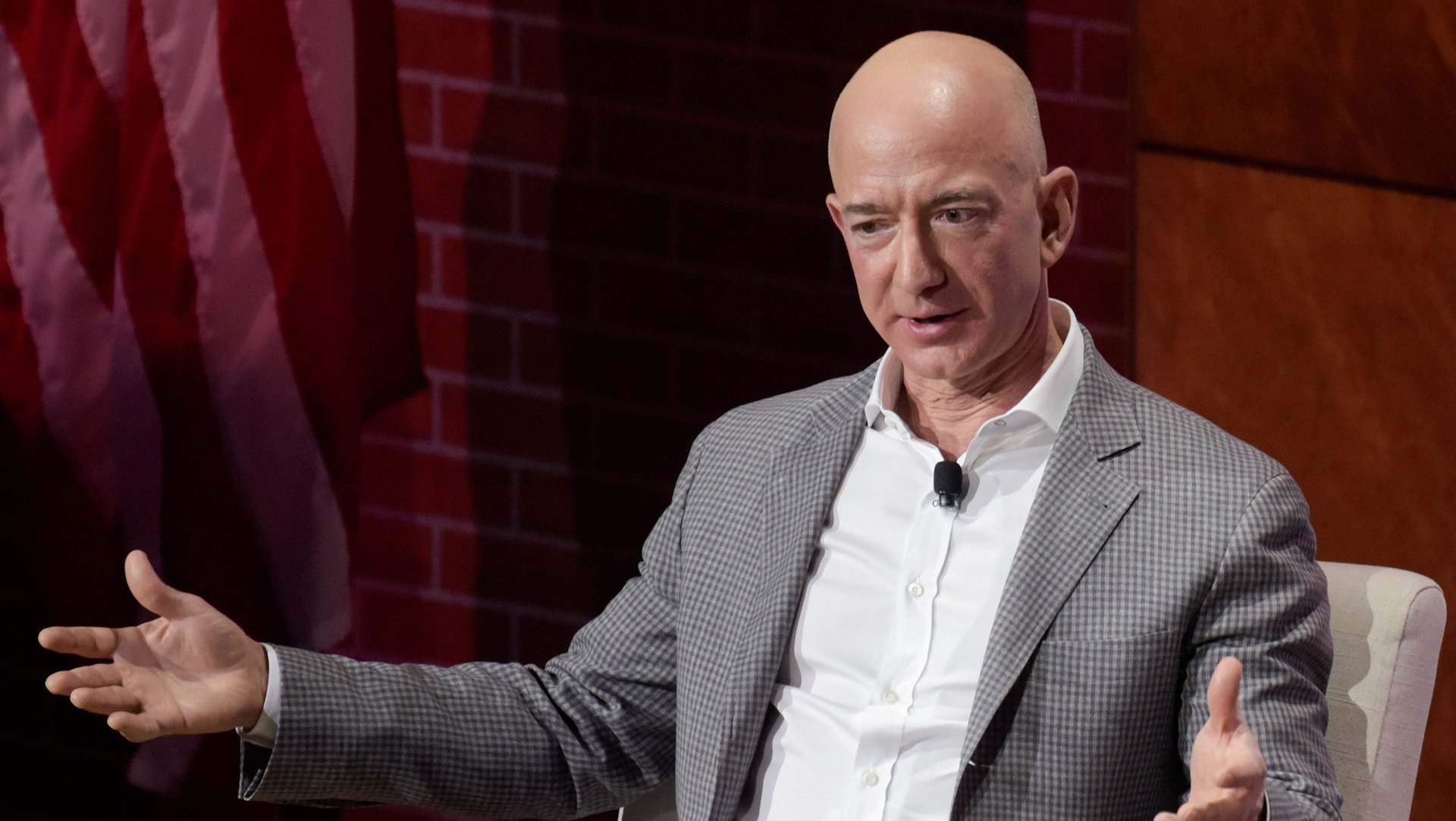Jeff Bezos wants to know what Elon Musk’s Twitter buy means for China
Now that Twitter has agreed to Elon Musk’s $44 billion offer, China Twitter has a question: Could Musk’s investment in the country factor into how the Tesla founder manages the platform?


Now that Twitter has agreed to Elon Musk’s $44 billion offer, China Twitter has a question: Could Musk’s investment in the country factor into how the Tesla founder manages the platform?
Despite having been banned in China since 2009, Twitter has been an important forum for both Chinese dissidents and ordinary citizens, who have used VPN software to bypass the firewall and find news that is censored in the country, air information about detained activists, and transmit videos and accounts of pandemic life from Chinese social media.
“Many people in China take great risks—including constant police harassment or even years of imprisonment—so they can get on Twitter to learn about information censored by the Chinese government,” said Yaqiu Wang, a senior China researcher at Human Rights Watch.
For its part, as concern about China influence operations has grown, Twitter has identified and suspended China-linked bots that pushed disinformation on issues such as Hong Kong’s 2019 protests, and labeled tweets from Chinese state-owned outlets and their staff.
It’s too early to tell whether or how any of this might change under Musk’s ownership, but given the importance of China as a supplier and a market to Tesla, it is something many are wondering.
Musk’s approach to managing Beijing
Tesla was the first foreign car maker to open a wholly owned factory in China, where the government has showered the company with tax breaks and cheap loans. For his part, Musk, who is quick to criticize the US government’s policies and regulatory agencies, has been one of China’s biggest cheerleaders.
Though the Shanghai lockdown cost the company’s Gigafactory three weeks of operations, Musk never criticized Beiing’s approach—while railing against similar orders in the US in 2020. This discrepancy in his stance toward the two governments, some worry, could play out in some form with respect to Twitter as well.
In addition, his description of himself as a “free speech absolutist” has some concerned that less moderation may lead to more misinformation, including from China-linked accounts. But some of the steps he outlined in a statement yesterday, including making the site’s algorithms open source, weeding out spam bots, and making sure accounts represent actual people, could reduce the impact of certain types of information operations.
In a follow-up to his first tweet, Bezos said he thought the most likely outcome is “complexity in China for Tesla, rather than censorship at Twitter…Musk is extremely good at navigating this kind of complexity.”
China’s pressure on foreign businesses over speech
China, however, has an established record of pressuring foreign businesses to tailor their public statements to its official narratives.
“Although Musk has of late enjoyed trolling the likes of Saudi Arabia for their views on freedom of speech, given Tesla’s dependence on China for future growth it’s unlikely he’ll have the same eagerness to publicly take on the Chinese Communist Party,” said Jordan Schneider, a senior analyst at Rhodium Group, referring to Musk’s war of words with Saudi prince Alwaleed bin Talal, who voiced his opposition to the Twitter sale as one of the company’s shareholders.
“How that reluctance extends to day-to-day moderation policy of state-owned media and state-backed botnets is anyone’s guess,” he told Quartz.
Twitter declined to comment. Tesla didn’t reply to a request for comment.